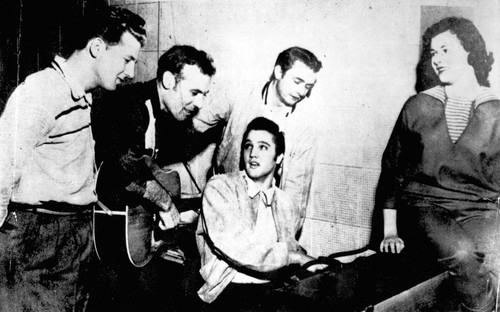I was fortunate to travel through Memphis just prior to Elvis Week, and for a day or so partake in the city’s fascinating mix of culture, agriculture and food. They’re all closely tied together, thanks to the poor sharecroppers who moved into the city and brought with them their music “ which would become known as the delta blues”and their menus.
Some found a better way of life. And there’s no question their music became legendary. It shaped rock and roll, and in Memphis you can still stand where Elvis recorded That’s Alright Mama, in Sun Studios, more than 50 years ago. In fact, you can even handle the very microphone he used to record it. What a slice of pop history.
But prosperity eluded many of those who arrived in the city, creating a legacy that Memphis can’t shake. Today, it’s one of the poorest cities in the U.S., with nearly one-quarter of the residents living below the poverty line. That’s about twice the U.S. national average. Unfortunately, it’s also one of the most sedentary of America’s largest metropolitan areas, and the most obese. Southern-hospitality-style food consumption and preparation is part of the culture, at homes and in restaurants. To people from Memphis, that’s local food in the traditional sense — local food that gives you the blues.
A friend from the south calls Memphis “beautiful, and painfully sad.” I write about this perspective in my Urban Cowboy column in the Guelph Mercury.
The photo below is of the famously dubbed Million Dollar Quartet, taken by a United Press photographer at Sun Studios with Elvis at the piano, Jerry Lee Lewis, Carl Perkins and Johnny Cash, along with Elvis’s girfriend Marilyn Evans. In most versions of this photo, including the one hanging in Sun Studios, Evans is cut out.



